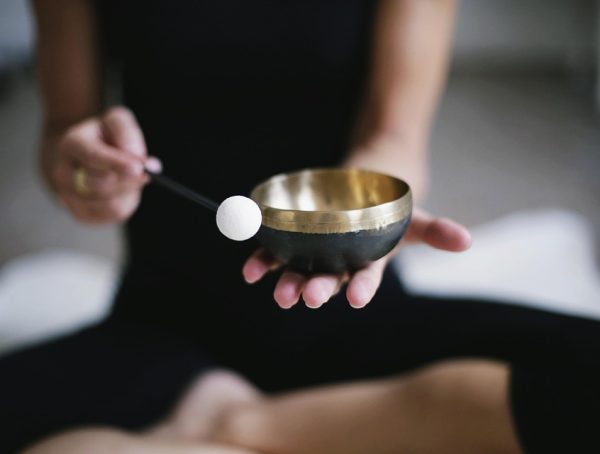Mindfulness Meditation: A Tool for Stress Relief
In today’s fast-paced world, stress seems to be an inescapable part of life. Juggling work responsibilities, family obligations, and social commitments often leave us feeling overwhelmed. The constant barrage of notifications from our devices doesn’t help either. During such challenging times, it’s essential to find effective strategies to manage stress and foster well-being. One powerful tool many have turned to is mindfulness meditation.
Understanding Mindfulness Meditation
Mindfulness meditation is a practice that involves focusing your awareness on the present moment while acknowledging and accepting your feelings, thoughts, and bodily sensations without judgment. Primarily rooted in Buddhist traditions, mindfulness has gained popularity in modern psychology for its proven benefits in reducing stress, anxiety, and depression.
Mindfulness encourages you to slow down and become more aware of your thoughts and feelings, which can lead to a greater sense of calm and balance. Unlike other forms of meditation that may require the practitioner to clear their mind, mindfulness meditation emphasizes observation—allowing thoughts to arise and pass without clinging to them.
Benefits of Mindfulness Meditation for Stress Relief
-
Reduction of Stress Levels: Numerous studies have demonstrated that mindfulness meditation can significantly lower cortisol levels, the hormone associated with stress. Practitioners often report feeling less overwhelmed and more capable of managing challenging situations.
-
Enhanced Emotional Regulation: Mindfulness encourages emotional awareness, allowing individuals to recognize their emotional triggers and respond rather than react to stressors. This leads to healthier coping strategies.
-
Improved Focus and Concentration: Training the mind to remain present improves cognitive function. This increased focus can lead to enhanced productivity, both at work and in personal life.
-
Physical Health Benefits: Mindfulness meditation has been linked to lower blood pressure, improved sleep quality, and even a strengthened immune response. By managing stress, you can promote overall well-being.
- Greater Self-Awareness: Mindfulness fosters a deeper understanding of oneself, leading to improved self-acceptance and resilience in the face of stress.
Getting Started: Action Steps for Mindfulness Meditation
If you’re new to mindfulness meditation, the process is straightforward and doesn’t require any special equipment or lengthy time commitments. Here are some action steps to get you started:
-
Set Aside Time: begin with just 5 minutes a day and gradually increase the time as you become more comfortable. Aim for a quiet space where you won’t be disturbed.
-
Choose a Comfortable Position: You can sit cross-legged on the floor, in a chair with your feet flat on the ground, or even lie down—whatever feels most comfortable for you. Ensure your back is straight but not rigid.
-
Focus on Your Breath: Close your eyes gently and take a few deep breaths. Breathe in through your nose and out through your mouth. Bring your focus to the natural rhythm of your breath. Notice the feeling of air entering and leaving your body.
-
Acknowledge Thoughts: As you meditate, various thoughts will inevitably arise. Instead of forcing them away, acknowledge them. Picture them as clouds floating in the sky, drifting past your mind. Recognize them and then return your focus to your breath.
-
Scan Your Body: After a few minutes of focusing on your breath, do a mental scan of your body from head to toe. Observe any areas of tension and consciously relax them.
-
Set an Intention: Before ending your session, set an intention for your day. It could be as simple as being kind to yourself or approaching challenges with an open mind.
-
Journal Your Experience: After each session, take a few minutes to jot down your feelings, thoughts, or anything you observed during your meditation. This practice can enhance self-reflection and help track your progress.
-
Incorporate Mindfulness in Daily Activities: Extend mindfulness beyond meditation. Practice being present in simple tasks like eating, walking, or even doing dishes. Notice sensations, tastes, and smells, and pay attention to your thoughts and feelings.
-
Join a Community: Consider joining a mindfulness meditation group or attending workshops. Being part of a community can enhance your commitment and foster deeper understanding.
- Be Patient: Mindfulness is a skill that develops over time. It’s natural to feel restless or distracted at first. With consistent practice, you’ll find it easier to stay present.
Conclusion
Mindfulness meditation is a potent strategy for managing stress and improving overall well-being. By dedicating time each day to this practice, you can cultivate greater peace and clarity in your life. It serves as a gentle reminder that in the midst of chaos, we can find stillness within.
As you embark on this journey, remember: “Your present is not your past. The present moment is where you can discover yourself, feel alive, and manifest a brighter future.”
For more inspiration and tips on wellness, follow Kevin on Instagram (@KSteineman)!
You might also like
More from Meditation
The Role of Mantras in Transcendental Meditation: A Deep Dive
The Role of Mantras in Transcendental Meditation: A Deep Dive Transcendental Meditation (TM) has garnered a significant following across the globe, …
The Science Behind Meditation: Improving Mental Health Naturally
The Science Behind Meditation: Improving Mental Health Naturally In today's fast-paced world, the pursuit of mental wellness has become paramount. Thousands …
Understanding the 7 Types of Meditation for Beginners
Understanding the 7 Types of Meditation for Beginners: A Path to Inner Peace Meditation has become a popular practice in recent …


































